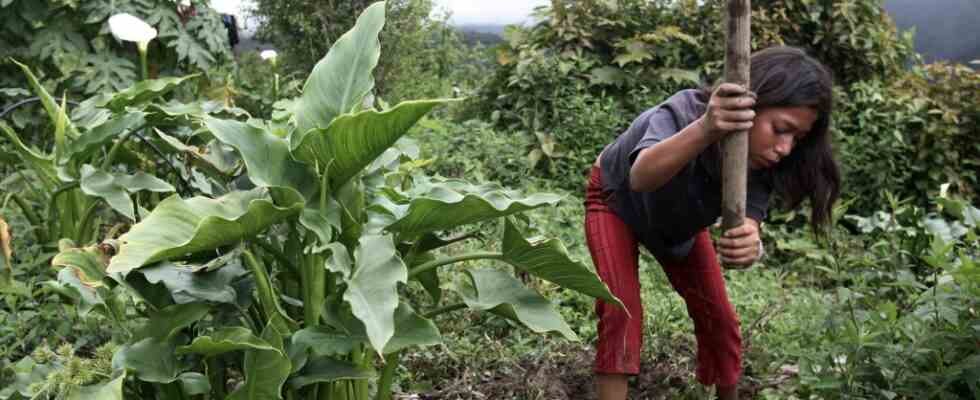Status: 06/12/2022 03:45 a.m
According to UN estimates, around 160 million children in this world have to work. Since the corona pandemic, the number has been increasing again. In Bolivia there has been an open discussion about the best way to deal with child labor for years.
Nine-year-old girls stand in front of discos at night and sell cigarettes to foreign tourists: a completely normal sight in Ecuador’s capital Quito, for example. Little boys polishing fine gentlemen’s shoes: everyday life in Bogotá, the capital of Colombia. And 11-year-olds lugging lots of heavy sacks of corn, rice or beans: normal in Peru. No country in South America is free from child labor and it is accepted almost everywhere.
Legalization of child labor in Bolivia
In Bolivia, however, a discussion about the work of boys and girls has developed around it. Because the left-wing government under Evo Morales did something unprecedented in 2014 and legalized child labor. At least under certain conditions, as human rights lawyer Bianca Mendoza clarifies: “This law was tailored to the real living conditions of the children affected, who were also consulted for advice.”
Also, only children over the age of ten were officially allowed to work – and only if they came from extremely poor backgrounds. A minimum wage was set for this purpose, according to Mendoza. In addition, there were social benefits and night work was forbidden, just as hard and dangerous work as in mining or in sugar cane cultivation. School attendance and regular health checks, on the other hand, were mandatory.
International criticism of Bolivia
Child advocates like Mendoza hailed the law as progressive. However, the International Labor Organization (ILO) and the children’s charity UNICEF were appalled: they define any child labor as exploitation. In 2018, following international pressure, the Bolivian government withdrew the law, at least in controversial passages, because it violated United Nations norms.
“Many of us believe that unless child labor is made visible, no real solutions are possible because we live in a crystal ball of believing our own lies,” Mendoza says.
800,000 children in Bolivia work
In fact, the children’s situation has not improved after the law was repealed, Mendoza said. On the contrary: The number of working children, which had previously fallen from around 850,000 to just over 740,000, rose again. And all the more so in the Corona pandemic. “We have kids as young as five selling candy, cookies, and small items like hair ties, shaving kits, and more,” Mendoza says.
This was seen earlier, for example at night, because there were restrictions. “Now, after the pandemic,” said the lawyer, children would be seen working much more often again. “With all the risks that entails.”
The children’s charity UNICEF officially estimates the number of working children in Bolivia to be more than 800,000. The dispute over how to deal with it continues.
Bolivia: Controversial child labor
Kai Laufen, ARD Rio de Janeiro, 12.6.2022 00:00 a.m

